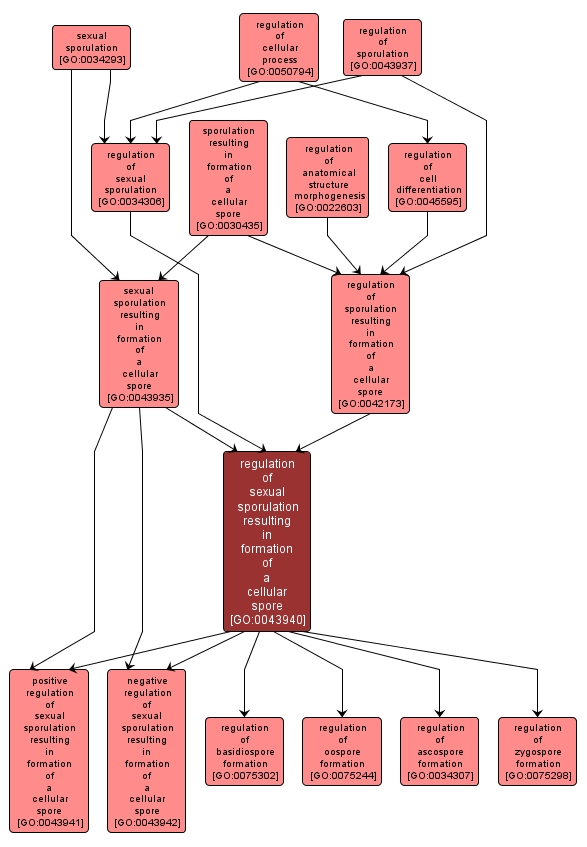GO TERM SUMMARY
|
| Name: |
regulation of sexual sporulation resulting in formation of a cellular spore |
| Acc: |
GO:0043940 |
| Aspect: |
Biological Process |
| Desc: |
Any process that modulates the frequency, rate or extent of the formation of cellular spores derived from the products of meiosis. |
|

|
INTERACTIVE GO GRAPH
|














